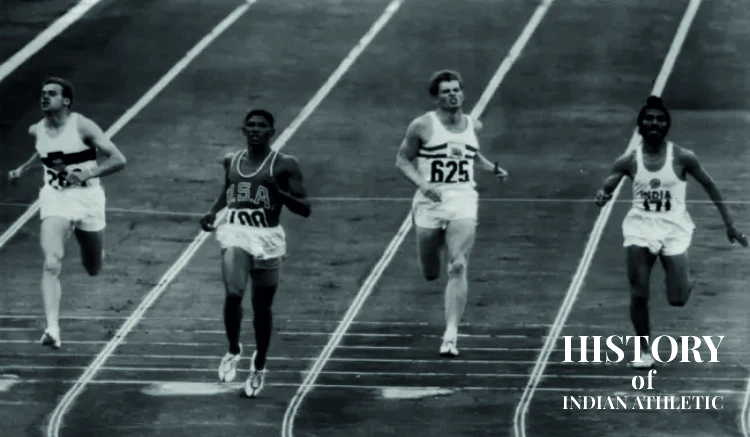
Indian Athletics: A Historical Perspective of Athletics in India
India enjoys a long chronology of athletic sportsmanship from the Vedic era to the current period and is now vigorously involved in modern forms of athletics. Dating around to the Vedic era, the history of Indian athletics was materialised into shape by the codes of the Atharva Veda. During the Vedic span, sports like chariot racing, equestrian, archery, weight lifting, wrestling, military tactics, hunting and swimming were in popularity. In due time, the spirit and character of sports in India began to change, vacating space for the up-gradation of sports and athletics in India. Modern versions of track and field events started to be played regularly and in collected form in the early years of Indian sovereignty. Till then, there were several stages in the history of Indian Athletics. In the initial years, games were played on grass and cinder paths, until an incremental shift to synthetic tracks emerged. The later introduction of technology into athletics enhanced its status also as maintaining the record of players' timing became vastly more manageable.
Overview of the History of Indian Athletics
During the 20th century, when the motherland was still under the control of the British Empire, India participated in the 1900 Summer Olympics and an Anglo-Indian named Norman Pritchard won silver medals in the 200 meters hurdles. This was an awe-inspiring moment and following this in the 1920 Antwerp Olympics, sprinter Purma Bannerjee, and distance runners Sadashir Datar and Phadeppa Chaugule were the first indigenous Indians to contest at the games. At the 1952 Helsinki Games, history was made when Mary D'Souza Sequeira and Nilima Ghose became India’s first female Olympians. Hereafter, the nation has persisted to send athletes to the Olympics athletics contest every four years. In the 1930s Far Eastern Championship Games, India contested at a regional level but failed to win any medals. The country hosted the Western Asiatic Games and won all but three of the athletics events and in 1951, India also hosted the Asian Games. Here, India managed to compete second to Japan and won Nilima Ghose and the men's sprint double by Lavy Pinto and Nilima Ghose. And in the 1954 Asian Games, Mary D'Souza Sequeira gave India its first women's athletics gold medal, taking the 4 X 100 metres relay title. The decade of 1940s and 1950s are most marked in the history of Indian athletics, as several athletics associations started their voyage in India, during that period. In 1946, the Amateur Athletics Federation of India (AAFI) was inaugurated for the management of Indian athletics. It worked in collaboration with other athletics organisations for improving the entire system of Indian athletics. The history of Indian athletics is incomplete without citing ‘The Flying Sikh’ or Milkha Singh, who at the 1958 Asian Games won the 200 m/ 400 m double. He even took on the 440 yards title at the Commonwealth Games and British Empire and became the first Indian champion at the competition. Over time and by the dawn of the 21st century, stark advancement was noticed in the norm of performance of sports in India. The country began to host primary athletics events more often, like the 2003 Afro- Asian Games, 2004 IAAF World Half Marathon Championships, 2004 Asian Cross Country Championships, 2007 Military World Games, 2008 Commonwealth Youth Games and 2010 Commonwealth Games, all representing the first time that India had hosted those competitions. At the 2018 IAAF World U20 Championships, Hima Das became India's first athlete to win a medal in a track event at an IAAF competition with her 400 metres gold medal. Some of the most successful athletes in the history of Indian athletics include Praveen Kumar, Gurbachan Singh Randhawa, T. C Yohannan, Sriram Singh and Neeraj Chopra, etc. Other than these, a few of the notable contemporary female athletes include Anju Bobby George, P T Usha, Soma Biswas, Jyotirmoyee Sikdar, Saraswati Saha Krishna Poonia and Swapna Singh, India’s only global athletics medallist.
